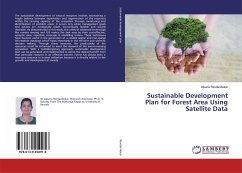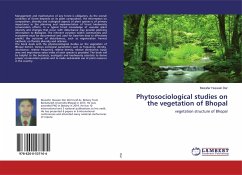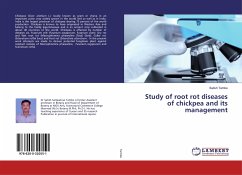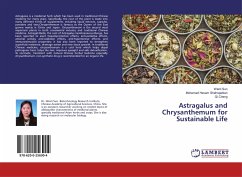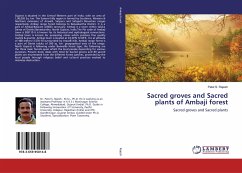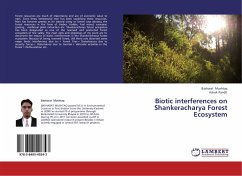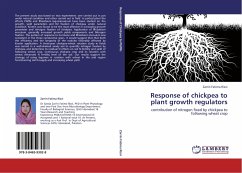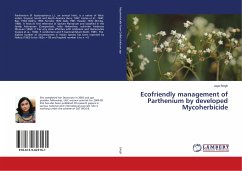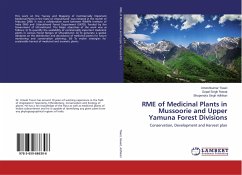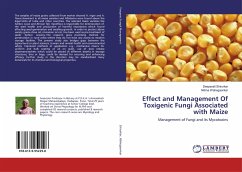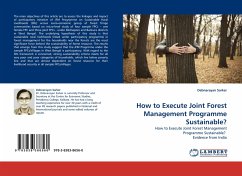
How to Execute Joint Forest Management Programme Sustainable?
How to Execute Joint Forest Management Programme Sustainable? Evidence from India
Versandkostenfrei!
Versandfertig in 6-10 Tagen
32,99 €
inkl. MwSt.

PAYBACK Punkte
16 °P sammeln!
The main objectives of this article are to assess the linkages and impact of participatory initiative of JFM Programme on Sustainable Rural Livelihoods (SRL) across socio-economic group of forest fringe communities based on micro-level study of four sample FPCs one female FPC and three joint FPCs - under Midnapore and Bankura districts in West Bengal. The underlying hypothesis of this study is that sustainable rural livelihoods linked under participatory programme in forest management for the households near the forests are the most significant force behind the sustainability of forest resourc...
The main objectives of this article are to assess the linkages and impact of participatory initiative of JFM Programme on Sustainable Rural Livelihoods (SRL) across socio-economic group of forest fringe communities based on micro-level study of four sample FPCs one female FPC and three joint FPCs - under Midnapore and Bankura districts in West Bengal. The underlying hypothesis of this study is that sustainable rural livelihoods linked under participatory programme in forest management for the households near the forests are the most significant force behind the sustainability of forest resource. The results that emerge from this study suggest that the JFM Progrmme under the sample FPCs/Villages in West Bengal is participatory. With regard to the SRL framework is concerned, strong sustainability criteria meets for all very poor and poor categories of households, which live below poverty line and that are almost dependent on forest resource for their livelihood security in all sample FPCs/villages.



